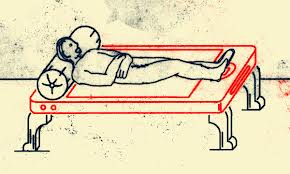The following quote comes from Wikipedia, original source Howe, D. (2011) Attachment across the life course, London: Palgrave.
 “In the presence of a sensitive and responsive caregiver, the infant will use the caregiver as a “safe base” from which to explore. It should be recognized that ‘even sensitive caregivers get it right only about 50 percent of the time. Their communications are either out of synch, or mismatched. There are times when parents feel tired or distracted. The telephone rings or there is breakfast to prepare. In other words, attuned interactions rupture quite frequently. But the hallmark of a sensitive caregiver is that the ruptures are managed and repaired.‘” (emphasis mine)
“In the presence of a sensitive and responsive caregiver, the infant will use the caregiver as a “safe base” from which to explore. It should be recognized that ‘even sensitive caregivers get it right only about 50 percent of the time. Their communications are either out of synch, or mismatched. There are times when parents feel tired or distracted. The telephone rings or there is breakfast to prepare. In other words, attuned interactions rupture quite frequently. But the hallmark of a sensitive caregiver is that the ruptures are managed and repaired.‘” (emphasis mine)
This reinforces D.W. Winnocott’s idea of the “good enough parent,” originally introduced to counterbalance psychoanalytic objectification of parent and child and return the emphasis of parenting to attachment and relationship. For myself, the concept of a “good enough” parent provides a necessary island of sanity in our overwhelming ocean of parenting perfection, an anxiety inducing norm which then – unsurprisingly – drives the skyrocketing rates of childhood anxiety. Which keeps me busy, but all things being equal wouldn’t it be nice if everyone relaxed, just a little, and allowed ourselves to be “good enough”? Children are remarkably resilient and flexible, and will thrive if provided the basic attachment needs described above. And no, this isn’t a prescription for scheduling “quality time,” or scheduling anything. It’s about love, and connection, and attachment which in the end will out over academics, salary, or any other materialistic, external marker of ‘success.’ Plus you want your kids to take care of you when you’re old and feeble, right? So lay that foundation now. Seriously, what children need more than anything – anything – is a “good enough” parent.
the skyrocketing rates of childhood anxiety. Which keeps me busy, but all things being equal wouldn’t it be nice if everyone relaxed, just a little, and allowed ourselves to be “good enough”? Children are remarkably resilient and flexible, and will thrive if provided the basic attachment needs described above. And no, this isn’t a prescription for scheduling “quality time,” or scheduling anything. It’s about love, and connection, and attachment which in the end will out over academics, salary, or any other materialistic, external marker of ‘success.’ Plus you want your kids to take care of you when you’re old and feeble, right? So lay that foundation now. Seriously, what children need more than anything – anything – is a “good enough” parent.
So be “good enough.” Read up on attachment if you want, and then build that “good enough” connection with your child – or anyone. After all, what do you have to lose except angst ridden anxiousness, stress, and worry?








